|
Getting your Trinity Audio player ready...
|
By: Fern Sidman
This past Friday, The Jewish Voice had the distinct privilege of sitting down with Rabbi Ezriel Mantsur, the venerable Rosh Yeshiva of Shuvi Nafshi, one of Jerusalem’s most revered institutions of higher Torah learning. Despite a demanding schedule filled with meetings and lectures during his current fundraising mission abroad, Rabbi Mantsur graciously offered us his time and insights into the yeshiva’s extraordinary work and its global impact on Jewish scholarship.
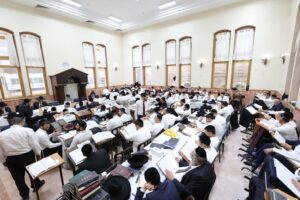
A Bastion of Torah Excellence
Nestled in the spiritual heart of Jerusalem, Yeshiva Shuvi Nafshi stands as a citadel of traditional Jewish learning and devotion. With a primary focus on preparing Bnei Torah for positions of sacred responsibility—dayanim (Halachic judges), mohelim (ritual circumcisers), shochetim (kosher slaughterers), and soferim (scribes of holy texts)—the yeshiva has cultivated a reputation for producing Torah scholars of rare depth, discipline, and humility. Its rigorous curriculum emphasizes mastery of the Talmud, Halachic rulings, and centuries of rabbinic commentary.
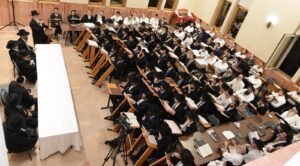
Rabbi Mantsur explained that the path to becoming a dayan, the apex of rabbinic authority in Jewish law, is a deeply demanding intellectual and spiritual journey. Students are required to pass government-administered examinations even before formally beginning this track. In total, he noted, it takes approximately 14 years of intensive learning to qualify as a dayan, and an additional seven years to achieve comprehensive proficiency in Talmudic study.
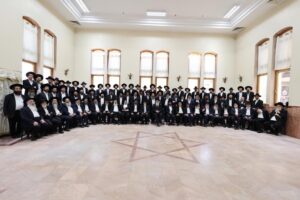
Rabbi Mantsur’s personal story is inseparable from a proud legacy of Torah scholarship. His paternal lineage, rooted in Yemenite Jewry, boasts generations of rabbinic figures who lived in Gaza centuries ago and were among the first to build synagogues in pre-state Jerusalem. Notably, his family was responsible for establishing the first synagogue in the Shimon HaTzaddik neighborhood and later settled in the historic Yemenite quarter of Nachalat Tzvi.
On his maternal side, Rabbi Mantsur traces his ancestry to the Jews of Spain, a community known for its radiant Sephardic heritage. It is the same soil that produced giants such as Rabbi Moshe ben Maimon (Maimonides), whose intellectual and spiritual contributions continue to define Jewish law to this day.
This blend of Sephardic erudition and Yemenite fervor is evident not only in Rabbi Mantsur’s teachings but also in his unwavering commitment to preserving and revitalizing ancient Jewish texts and traditions.
Among the many remarkable undertakings at Shuvi Nafshi is the revival and republication of rare and ancient Jewish manuscripts. Over two decades ago, the yeshiva established a dedicated division tasked with preparing previously unpublished works for print and reprinting forgotten or out-of-circulation texts. This division, staffed by seasoned Torah scholars, has to date published hundreds of thousands of volumes, drawing from an extraordinary collection of source material.
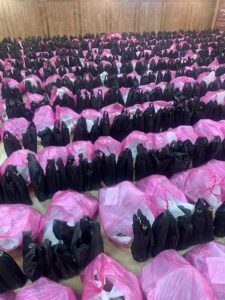
“Our scholars begin by transcribing these manuscripts word for word,” Rabbi Mantsur told The Jewish Voice. “But it does not end there. Every citation is verified, footnotes are added, and the text is meticulously proofread to preserve the integrity and original intent of the author. It is painstaking work—but holy work.”
This scholarly endeavor draws on the resources of a vast Torah library housing tens of thousands of volumes, including hundreds of manuscripts over 500 years old. The library encompasses the full spectrum of Jewish scholarship—from halakhic responsa and novellae on the Talmud to commentary on Torah and Kabbalistic teachings. Many volumes are personally annotated by the rabbinic luminaries who once owned them.
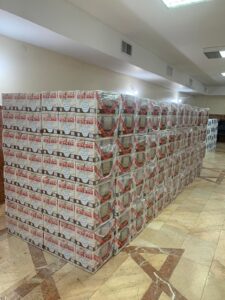
Rabbi Mantsur emphasized that this treasure trove is open not only to Shuvi Nafshi’s internal scholars but also to the wider public. “All of this is at the disposal of those who seek the truth of the Torah,” he said.
Among the crowning achievements of this publishing division is the republication of the works of Rabbi Haim Palachi, the esteemed chief rabbi of Smyrna (modern-day Izmir, Turkey) in the 19th century. A towering figure of Sephardic jurisprudence, Rabbi Palachi authored profound commentaries and Halachic decisions in both Ladino and Hebrew, holding the revered titles of Hakham Bashi and Gaon. He was the patriarch of a distinguished rabbinic dynasty, including his sons Abraham, Isaac (Rahamim Nissim), and Joseph Palacci. The family belonged to the esteemed Pallache lineage, a name synonymous with Sephardic religious leadership.
The Shuvi Nafshi press has also printed a 500-year-old siddur from Aleppo, Syria, and numerous texts dating back as far as 650 years, helping preserve liturgical and legal traditions that might otherwise have been lost to time.
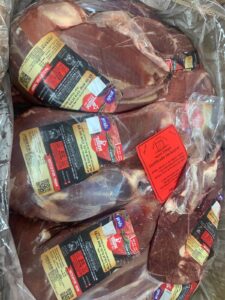
A particularly noteworthy initiative spearheaded by Rabbi Mantsur is Shuvi Nafshi’s effort to make Torah learning accessible to all. The yeshiva prints an astonishing 170,000 books annually, covering halacha, Gemara, perushim (commentaries), and mussar (ethical teachings). “Each book is sold for just $7,” Rabbi Mantsur shared, highlighting the goal of bringing sacred knowledge within reach for all communities, regardless of their means.
Yeshiva Shuvi Nafshi in Jerusalem has emerged as a beacon of return to the noble, grounded traditions of Sephardic Torah scholarship that once flourished in the academies of Spain and the Levant. The yeshiva’s stated mission is nothing less than the restoration of that lost grandeur: to raise a new generation of scholars trained not in rhetorical gymnastics, but in the methodical mastery of the Talmud and practical halakha.
“For centuries,” Rabbi Mantsur began, “the study of Talmud Bavli was the full-time life pursuit of Torah giants. They didn’t just learn for knowledge—they lived it. Entire worlds were built around the Talmud, with thousands of commentaries written to explain every nuance, every layer of Rashi, Tosafot, and the classic commentators.”
The Sephardic Tradition: A Lost Art Reclaimed
Drawing upon his own deep lineage of Spanish and Yemenite Torah scholars, Rabbi Mantsur lamented the erosion of a once-vibrant tradition of in-depth Talmudic analysis practiced by Sephardic sages for generations.
“In Spain,” he explained, “we developed a tradition of deep, clear thinking in Torah. Our scholars didn’t just answer questions—they dismantled the entire sugya, rebuilt it, and reached conclusions rooted in halakhic reality, not in acrobatics. This clarity was passed down through generations. But somewhere along the way, we lost it.”
At Shuvi Nafshi, Torah is not only studied—it is revered, cultivated, and guarded with the utmost diligence. The Bet Midrash pulses with study nearly 24 hours a day, with distinct groups of scholars dedicated to various tracks, each supervised by accomplished rabbanim.
But what truly sets the yeshiva apart is the pre-dawn learning, a discipline as intense as it is spiritually moving.
“Every morning at 4:00 a.m., a select group of young men gathers here,” Rabbi Mantsur told us. “They begin with the ancient texts of Kabbalah—not for mysticism, but to prepare their neshamot (souls) for the day’s sacred work. They immerse themselves, then rise for a heartfelt Shaharit that is infused with meaning. These are not ordinary prayers—they are tefillot for Klal Yisrael and for specific people who reach out to us for divine mercy.”
These early hours are marked not just by learning, but by personal sacrifice, Rabbi Mantsur emphasized. “It is dark. It is cold. They are tired. And yet they come—not because they are required, but because their hearts burn for Torah.”
The cornerstone of Shuvi Nafshi’s educational policy is the methodical, linear study of the Talmud—daf achar daf, masechet achar masechet—with the singular aim of true comprehension.
“We are not here to train entertainers,” Rabbi Mantsur said with firm resolve. “We are here to raise poskim, dayanim, and amudei hora’ah—men who will carry the weight of halakhic leadership. For this, brilliance alone is not enough. You need structure. You need precision. And above all, you need truth.”
To this end, each class at Shuvi Nafshi is supervised by seasoned rabbis, who not only teach but mentor. The yeshiva’s flagship course in hora’a (halakhic decision-making) and dayanut (rabbinic judiciary) trains students in the application of halakha to real-world cases—a skill increasingly in demand across the global Jewish world.
“Students in this track are divided into special groups according to their level and future path,” said Rabbi Mantsur. “We don’t just give them answers. We show them how to think like poskim—how to weigh sources, how to compare rulings, how to issue judgments that can stand the test of halakha and history.”
The Secrets of the Torah
Rabbi Mantsur is widely recognized as a master of traditional Kabbalistic study, having immersed himself in this sacred discipline for over forty-five years. His journey into the depths of Kabbalah was guided by two of the foremost Torah giants of the previous generation: Rabbi Yehudah Tzadka, zt”l, and Rabbi Ben Tzion Abba Shaul, zt”l. His primary teacher in this field was the renowned Kabbalist Rabbi Avraham Barazani, zt”l, who was himself the beloved disciple of Rabbi Yehudah Fetaya, zt”l—a towering figure celebrated for his spiritual contributions to the Jewish people.
Rabbi Manstur dedicates his teaching to unveiling the “secrets of the Torah,” the deeply spiritual and mystical dimensions that lie at the heart of Kabbalah. Through this wisdom, he also provides spiritual guidance to individuals seeking clarity on significant life decisions.
At Shuvi Nafshi, the group of Kabbalah students under his direction is made up of seasoned and accomplished individuals. These are not typical students in the conventional sense; rather, they are mature, spiritually advanced scholars who have committed themselves to unlocking the hidden truths of the holy Torah. These men are not beginners—they are themselves steeped in the sacred traditions of Kabbalistic learning.
The Dayanut Program
The dayanut program is designed to produce the next generation of dayanim, judges who will sit on rabbinical courts and adjudicate in matters of Jewish civil and family law.
“Our dayanim-in-training immerse themselves in Hoshen Mishpat and Even Ha’ezer,” Rabbi Mantsur explained. These two sections of the Shulhan Arukh govern civil disputes, financial ethics, and matters of marriage and divorce. “As with hora’ah, we start with the sugya in the Gemara, proceed to the Tur and Bet Yosef, and from there to the Shulhan Arukh and modern decisors.”
But unlike purely academic programs, the study of dayanut at Shuvi Nafshi is intimately tied to practice. Students are assigned actual legal cases being heard in the Tzedek Umesharim rabbinical court, which operates under the auspices of the yeshiva and is staffed by a bench of prominent, veteran dayanim.
“The cases range from disputes over contracts to delicate issues in Jewish divorce law,” Rabbi Mantsur said. “Our advanced scholars are asked to research and submit legal opinions, which are then reviewed by the sitting dayanim. It’s immersive, rigorous, and real. That’s what makes it transformative.”
Upon passing a final series of exacting examinations, candidates receive official government-recognized certification to serve as dayanim in rabbinical courts, or as community rabbis with authority in civil and personal status matters.
A Mission of Chesed
Beyond the illuminated study halls and sacred texts of Yeshiva Shuvi Nafshi lies a deeply humanitarian mission—one that reflects the authentic heart of Torah: caring for the vulnerable, uplifting the poor, and bringing dignity to those forgotten by society.
“In our tradition,” Rabbi Mantsur told The Jewish Voice, “Torah and chesed (kindness) are not separate spheres. They are two sides of the same coin. You cannot study halakha all day and then close your eyes to the suffering around you. Our obligation to help the needy is just as binding as our obligation to study.”
As part of its multifaceted activities, Yeshiva Shuvi Nafshi operates an extensive aid distribution network that reaches deeply into the social fabric of Israel’s most impoverished communities. These efforts are especially intensified in the weeks leading up to the Yamim Tovim, when the financial burdens on large families—particularly those struggling with poverty—become insurmountable.
“Before every Yom Tov, we open our hands and our hearts,” Rabbi Mantsur said. “We distribute food and financial support to hundreds—sometimes thousands—of families, many of whom would not have a single chicken on their table, or clothing for their children, without this help.”
The beneficiaries of this aid include widows, orphans, and large families—often with ten to twelve children—whose means are severely limited. These are not faceless recipients. Each application is carefully reviewed to assess financial eligibility, ensuring that assistance goes to those most in need.
“We examine each case with dignity and discretion,” Rabbi Mantsur explained. “No one wants to feel like a burden. We approach these families with respect, and with the knowledge that helping them is not a favor—it is our duty.”
The scope of support provided by Shuvi Nafshi is both practical and comprehensive. Each approved family receives a monetary stipend to purchase food and clothing before the holidays. But the yeshiva goes even further.
“We provide about 20 kilos of meat per family before every Yom Tov,” said Rabbi Mantsur. “We ensure that each child has clean, dignified clothing, and we help cover urgent medical expenses that fall outside of the national health system—especially life-saving medications or treatments that are otherwise unaffordable.”
This work is sustained by a logistical engine that includes the regular delivery of large quantities of food to the yeshiva’s central warehouse. Volunteers, many of them students, assist with packing and distributing food baskets in time for the holidays, bringing nourishment—and hope—to the tables of the poor.
Rabbi Mantsur is unequivocal when it comes to recognizing those who make this immense charitable endeavor possible. “The Syrian Jewish community in Brooklyn and Deal, New Jersey—what can I say? Their generosity is unparalleled,” he said with heartfelt emotion. “They have stood with Shuvi Nafshi in every project, and they have never turned away from a chance to help Am Yisrael.”
It is thanks to the consistent support of these Syrian-Jewish communities that Shuvi Nafshi is able to sustain assistance to more than 3,000 families throughout Israel. Their commitment, Rabbi Mantsur said, reflects a deeper truth about Jewish unity and the power of diaspora-Israel partnerships.

 c39785e0MsoNormal">“They don’t ask questions. They just say: ‘Who needs help? What do they need? And how soon can we get it to them?’ That kind of giving is not only about charity—it is about identity. They understand that the fate of every Jew is interconnected.”
c39785e0MsoNormal">“They don’t ask questions. They just say: ‘Who needs help? What do they need? And how soon can we get it to them?’ That kind of giving is not only about charity—it is about identity. They understand that the fate of every Jew is interconnected.”
At its core, Yeshiva Shuvi Nafshi represents an uncompromising fusion of Torah scholarship and social action. Whether cultivating future dayanim in the Beit Midrash or ensuring a widow has meat for her Yom Tov table, the institution lives by a single guiding principle: to bring holiness into every aspect of life.
“We cannot build talmidei chachamim who ignore the cries of the hungry,” Rabbi Mantsur reflected. “And we cannot call ourselves a Torah institution if we do not reflect the compassion and justice that the Torah demands. Our goal is to train scholars who will lead not only with their minds, but with their hearts.”
He added, “Every kilo of meat we give, every pair of shoes we provide for a child—it’s not just an act of chesed. It is a continuation of our ancestors’ legacy. It is the living Torah.”
As Rabbi Mantsur returns to his work—overseeing Torah classes, coordinating legal aid through the rabbinical courts, and supervising pre-holiday distribution drives—it is clear that Shuvi Nafshi is more than a yeshiva. It is a lifeline. A home. A sanctuary where the ancient values of learning and lovingkindness converge to uplift the present and shape the future.
In a time of increasing material and spiritual need across Israel, Shuvi Nafshi stands as a testament to the enduring power of Torah to feed, to guide, and to heal.
“We don’t just study the words of our sages—we live them,” Rabbi Mantsur concluded. “And when we care for the poor, we fulfill the highest aspiration of Torah: to bring blessing to the entire nation of Israel.”


